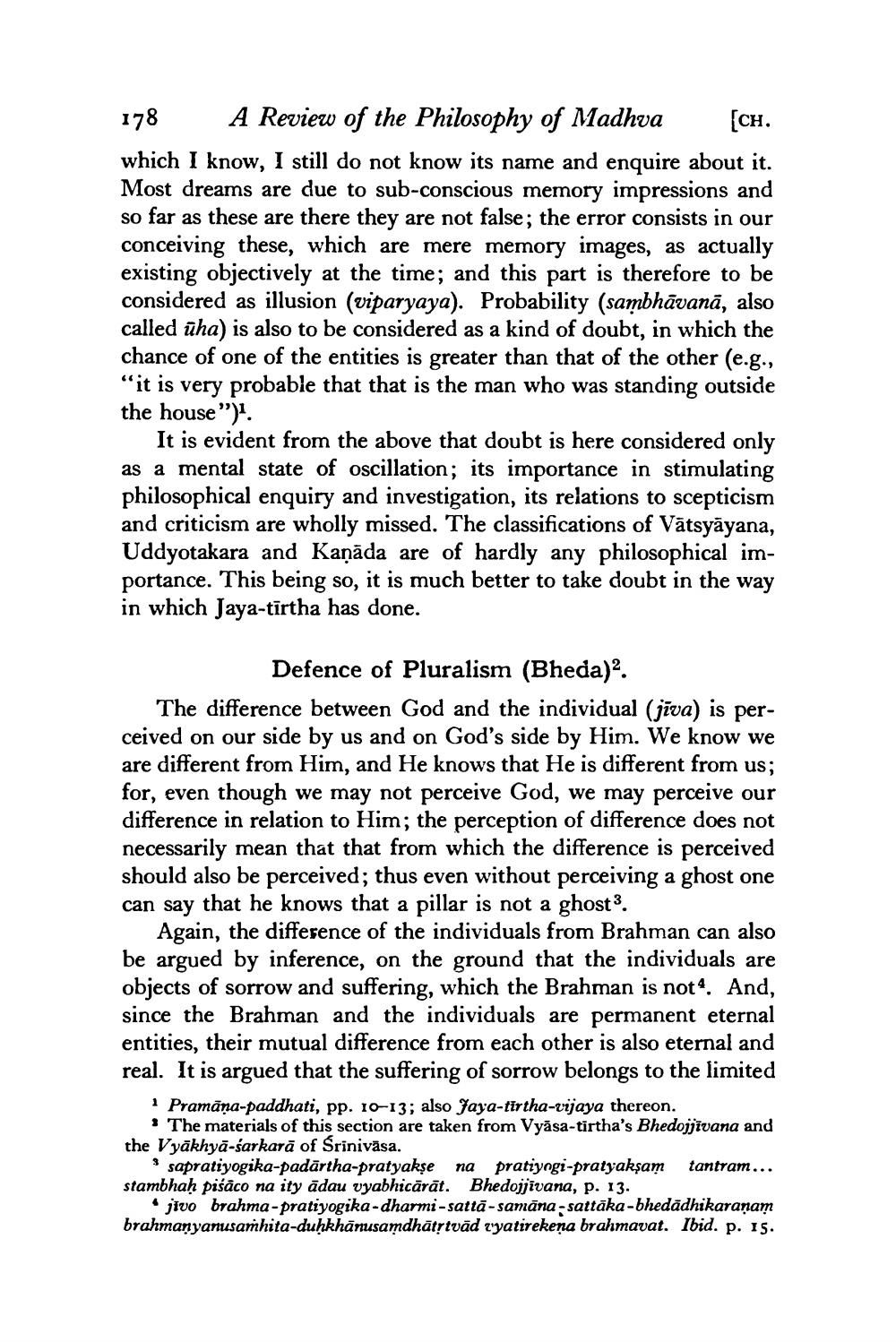________________
178 A Review of the Philosophy of Madhva [CH. which I know, I still do not know its name and enquire about it. Most dreams are due to sub-conscious memory impressions and so far as these are there they are not false; the error consists in our conceiving these, which are mere memory images, as actually existing objectively at the time; and this part is therefore to be considered as illusion (viparyaya). Probability (sambhāvanā, also called üha) is also to be considered as a kind of doubt, in which the chance of one of the entities is greater than that of the other (e.g., “it is very probable that that is the man who was standing outside the house").
It is evident from the above that doubt is here considered only as a mental state of oscillation; its importance in stimulating philosophical enquiry and investigation, its relations to scepticism and criticism are wholly missed. The classifications of Vātsyāyana, Uddyotakara and Kaņāda are of hardly any philosophical importance. This being so, it is much better to take doubt in the way in which Jaya-tīrtha has done.
Defence of Pluralism (Bheda). The difference between God and the individual (jīva) is perceived on our side by us and on God's side by Him. We know we are different from Him, and He knows that He is different from us; for, even though we may not perceive God, we may perceive our difference in relation to Him; the perception of difference does not necessarily mean that that from which the difference is perceived should also be perceived; thus even without perceiving a ghost one can say that he knows that a pillar is not a ghost 3.
Again, the difference of the individuals from Brahman can also be argued by inference, on the ground that the individuals are objects of sorrow and suffering, which the Brahman is not4. And, since the Brahman and the individuals are permanent eternal entities, their mutual difference from each other is also eternal and real. It is argued that the suffering of sorrow belongs to the limited
Pramāna-paddhati, pp. 10–13; also Jaya-tīrtha-vijaya thereon. : The materials of this section are taken from Vyăsa-tirtha's Bhedojjīvana and the Vyākhyā-sarkarā of Srinivasa.
* sapratiyogika-padārtha-pratyakse na pratiyogi-pratyakşam tantram... stambhaḥ piśāco na ity ādau vyabhicārāt. Bhedojjivana, p. 13.
jivo brahma-pratiyogika-dharmi - sattā - samāna sattāka-bhedādhikaranam brahmanyanusamhita-duhkhānusamdhātrtvād z'yatirekena brahmavat. Ibid. p. 15.




